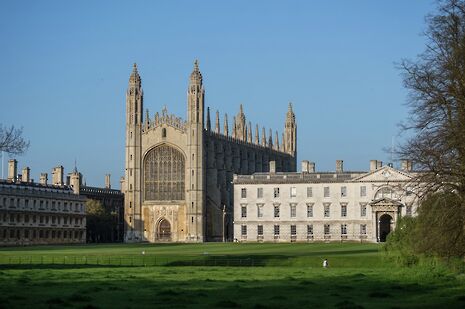Rising Cambridge tech stars named on Forbes list
Several Cambridge scientists have appeared on the inaugral Forbes ’30 Under 30 Europe List’

A number of talented Cambridge scientists and technological entrepreneurs have recently been featured on the inaugural Forbes '30 Under 30 Europe List’.
Dr Steve Marsh, 27, founder and CEO of the technology firm GeoSpock, has been featured in the Science and Healthcare section of the Forbes list. Dubbed “the most exciting kind of technology company” by its technological partners, GeoSpock is a company that handles geospatial data in real time, targeting everything from automobiles to genomics. Marsh, who was the first person from his secondary school to earn a PhD, came up with the idea for GeoSpock while studying for his PhD at the University of Cambridge Computer Labs.
Focused on developing a real-time super computer on an extreme scale that could simulate human brain function, GeoSpock is his invention that is capable of handling big data, processing and cataloguing massive amounts of information simultaneously. Marsh partnered up with Horizon’s current CEO, Dr Darrin Disley, to launch the company, and is also collaborating with Abcam’s Dr Jonathan Milner. The company’s services have rapidly attracted interest from various industries and it has recently secured £3.5 million in Series A investment.
Karolis Misiunas, 27, is a Lithuanian PhD candidate at the University of Cambridge who has also been featured on the Science and Healthcare list. His research concerns how particles couple with each other and how strongly at the deepest observational levels. The information is particularly relevant for other research fields involving channels and protein pores.
Toby Norman, 28, Tristam Norman, 27 and Daniel Storisteanu, 29, the three cofounders of the Cambridge-based, non-profit technological startup SimPrints, have been featured in the Social Entrepreneurship category of the Forbes list. Describing themselves as a team who want to “change the world” with their lightweight mobile biometric scanners, the company is expected to release their product later this year. The scanners they have developed connect wirelessly with any Bluetooth 2.0 phone, and are to be used primarily in developing countries to link biometrics with medical records, bypassing problems that arise from inadequate paper-based health records. The trio have won numerous accolades including Business Weekly’s ‘Startup of the Year’ and UNICEF’s ‘Best Tech: Changing Children’s Lives for Good’ Award, as well as the Bill and Melinda Gates Foundation ‘Saving Lives at Birth Award’.
 News / Fitz students face ‘massive invasion of privacy’ over messy rooms23 April 2024
News / Fitz students face ‘massive invasion of privacy’ over messy rooms23 April 2024 News / Cambridge University disables comments following Passover post backlash 24 April 2024
News / Cambridge University disables comments following Passover post backlash 24 April 2024 Comment / Gown vs town? Local investment plans must remember Cambridge is not just a university24 April 2024
Comment / Gown vs town? Local investment plans must remember Cambridge is not just a university24 April 2024 News / Students organise Cambridge’s first female and non-binary club night25 April 2024
News / Students organise Cambridge’s first female and non-binary club night25 April 2024 Arts / ‘Walking around Robinson is automatically humbling’: college architecture and the psyche24 April 2024
Arts / ‘Walking around Robinson is automatically humbling’: college architecture and the psyche24 April 2024





